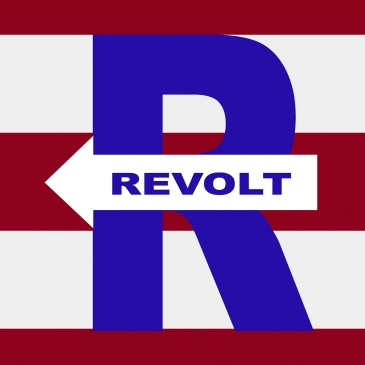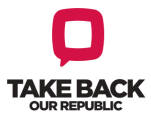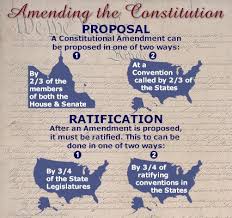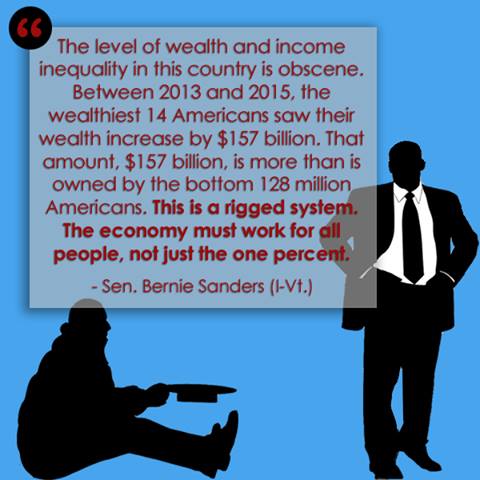
RAP’s Revolutionary Agenda
While we are against plutocracy, a good question to ask is, “what are you for?” No revolution continues indefinitely. Our revolutionary agenda is based upon a simple principle: political equality for all. Our revolution will be declared a success when plutocracy has been replaced by a comprehensive, campaign finance reform bill, signed into law, that creates genuine democratic equality, our primary, revolutionary demand.
Plutocracy, a government of, by and for the wealthy few, will need to be addressed with two key components: 1) an amendment to the Constitution to overturn Buckley v Valeo, Citizens United v FEC and McCutcheon v FEC, leading to 2) comprehensive campaign finance reform. While we do not support economic equality, we do believe that political equality is essential for any democratic society. Political equality before the law is not just one person/one vote but also $X.00 maximum/citizen in a given election cycle. This page is intended to explain the value of X and outline our key issue: money in politics.
The emergency of runaway global warming has convinced us to set our agenda of comprehensive, campaign finance reform on hold for the next election cycle. For more on that, see GREEN REVOLUTION.
Campaign Finance Reform
Talking Points Memo has reported that, according to a poll from the New York Times, some 85 percent of the American people believe that the way political campaigns are funded needs either “fundamental changes” (39 percent) or “a complete rebuild” (46 percent). Senator Sanders supports public financing of elections. While most of the American left agrees with that concept, we believe that there is a better way the American right could embrace.
Conservatives at the Take Back Our Republic website support a voucher program where Americans would receive a voucher back from  the government for the first $200.00 they pay in income tax. The weakness with that idea is two-fold: 1) Americans who do not make enough to pay $200.00 in federal income tax would not fully benefit or they would be left out completely and 2) $200.00 would deprive the federal government of too much money. If every American citizen qualified to vote had a $50.00/year voucher to donate to candidates, PACs and/or political parties, the total amount of money available would be roughly equal to the total spent on all national campaigns in 2012.
the government for the first $200.00 they pay in income tax. The weakness with that idea is two-fold: 1) Americans who do not make enough to pay $200.00 in federal income tax would not fully benefit or they would be left out completely and 2) $200.00 would deprive the federal government of too much money. If every American citizen qualified to vote had a $50.00/year voucher to donate to candidates, PACs and/or political parties, the total amount of money available would be roughly equal to the total spent on all national campaigns in 2012.
Our creative compromise is a synthesis of “public”financing and a voucher program. Political equality means not just one person/one vote but also one person/$X.00 maximum available for political donations. No one should be allowed to give more than $X.00, and the value of X would be determined by compromise in legislation. For Americans who do not make enough to pay $X.00 in income or capital gains tax, their voucher could be supplemented or funded by a tax, not on citizens, but on American-based transnational corporations. The profits made by Exxon/Mobil alone in just the fourth quarter of last year, $6.6 Billion–that’s billion with a B–could fund virtually the entire voucher program of all citizens in the U.S. if X = 50. Taxing all American-based, TNCs to fund the vouchers of poor Americans would not amount to a significant tax increase for them. The value of X would have to be updated from election cycle to election cycle to adjust for inflation.
One way to decrease the value of X would be to provide all candidates, who are on the ballot, with free and equal amounts of radio and television air time. While we consider that preferable to high values of X, the campaign-media complex would push back against such an effort. The value of X will need to cover the costs of all campaigning. Under current conditions, if X = 50, the media corporations would not see their campaign advertising income decrease much. Keeping corporate media from opposing a campaign finance proposal would aid in its success
Once all American citizens attain political equality, our revolution will be completed; and we will declare victory against plutocracy.
Constitutional amendment?

Starting in 1976, the Supreme Court usurped the power of Congress and state legislatures to regulate the manner of holding fair elections. The decision, Buckley v Valeo, overturned limits Congress placed on the amount of money candidates could spend on electioneering communications (propaganda). The upshot of that decision was a modification of the First Amendment that equated money with speech. In the 2010 Citizens United decision, that logic was applied to associations including for-profit, American-based transnational corporations. While they already had First Amendment free speech rights, also granted by the Court in 1976, Citizens United allowed them to spend unlimited amounts of money helping elect the candidates of their choice. This is not democracy; this is corporatocracy. In McCutcheon v FEC (2014), the Court ruled that giving (not just spending) money to candidates for office is protected by the First Amendment.
The campaign finance reform described above to establish political equality would be ruled unconstitutional under current Court doctrine established by Buckley, Citizens United and McCutcheon. Congress can take back the power the Court took from them by passing a constitutional amendment to the U.S. Constitution that gives it and state legislatures the power to regulate the volume, not the content, of political speech. To replace our current plutocratic corporate-state, either the Constitution must be amended to make clear to legislators and judges that money is not speech and corporations are not people (associations have privileges, not rights) or pass a campaign finance bill to enact political equality for all citizens and invoke the Constitution’s Exclusion Clause in Article 3, Section 2. The Framers granted Congress the explicit power to craft legislation and block (exclude) the courts from ruling on it.
Taxing the Wealthy?

The upward redistribution of wealth in the U.S. over the last 35 years is primarily a direct consequence of the Reagan tax cuts, so called Reaganomics or supply-side, neo-liberal economics. (The Reagan “Revolution” was more like a counter-revolution.) The basis of our perspective is captured by Robert Reich’s film Inequality for All. Like Reich, we are not Marxists. We support higher incomes for workers through the implementation of a livable wage system and a federal job guarantee.
A constitutional amendment and/or comprehensive campaign finance reform will not happen anytime soon. While we struggle for political equality and deploy leverage during campaign seasons, the RAP revolution will support efforts to raise the minimum wage. Higher minimum income is a much higher priority than federal tax increases that are often unpopular and politically impossible to pass. The federal government does not need tax income to function and pay its bills. The Constitution gives Congress the power to coin money, and that’s all it needs to either print money or, more often, move numbers around on federal budget spreadsheets. Conservatives should understand this after Vice-President Cheney said, “Ronald Reagan taught us deficits do not matter.” When a sovereign nation has control of its own currency, and that currency is not tied to anything of value such as gold, those federal governments can always pay their bills.
Tax increases take money out of the economy, and there is a lot of extreme wealth. If you doubt that there is more than enough money available to accomplish almost any goal, read David DeGraw’s “Unprecedented Abundance.” Taxing the wealthy is not a priority for us. Solving the problem of plutocracy using comprehensive, campaign finance reform was our top priority until soon after the Intergovernmental Panel on Climate Change’s most recent report. Saving the mammal-supporting climate from collapse has become RAP’s job number one for the next election. We hope other groups will unite around this strategy and endorse the #ClimateOrBust voting strategy to make that same point.